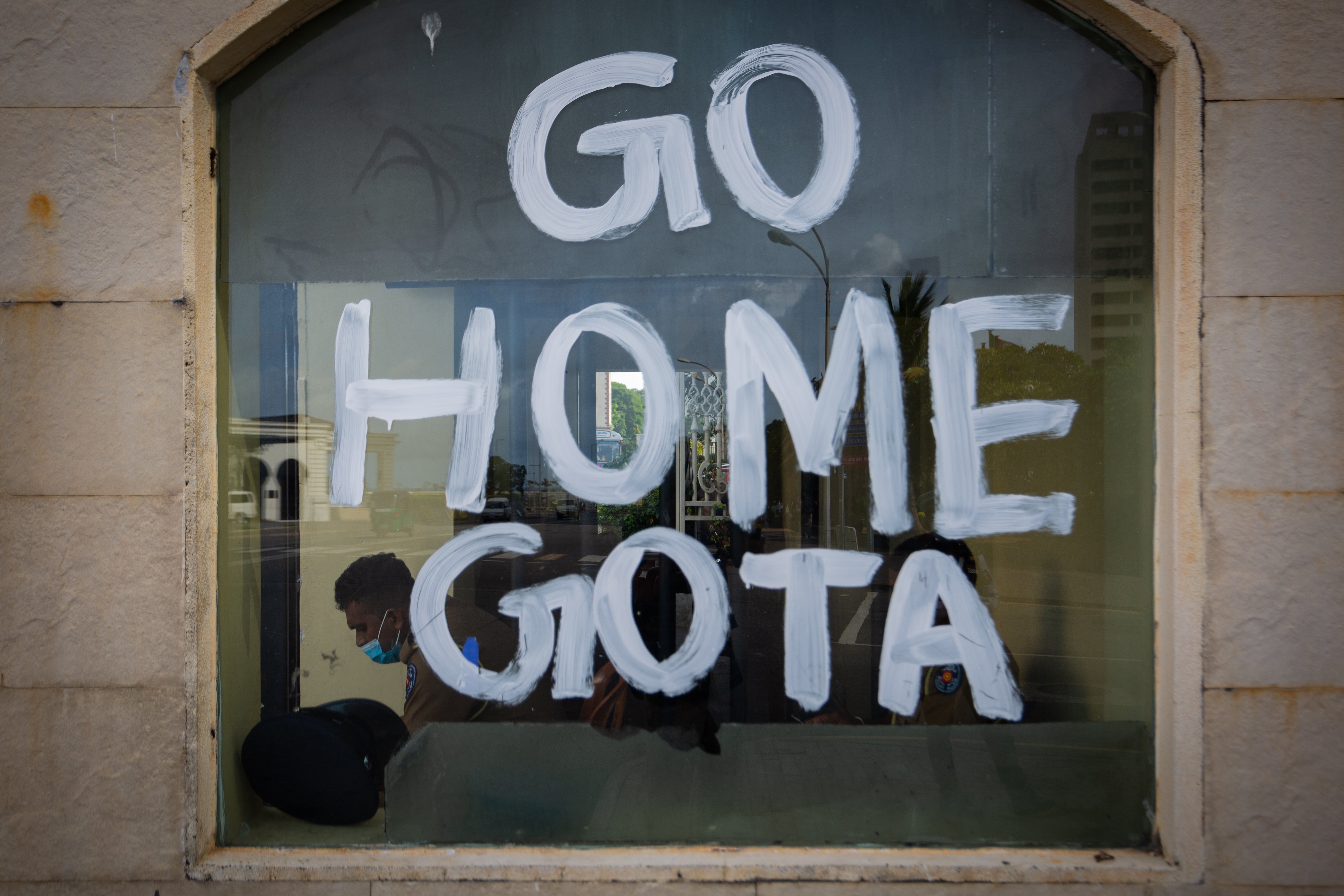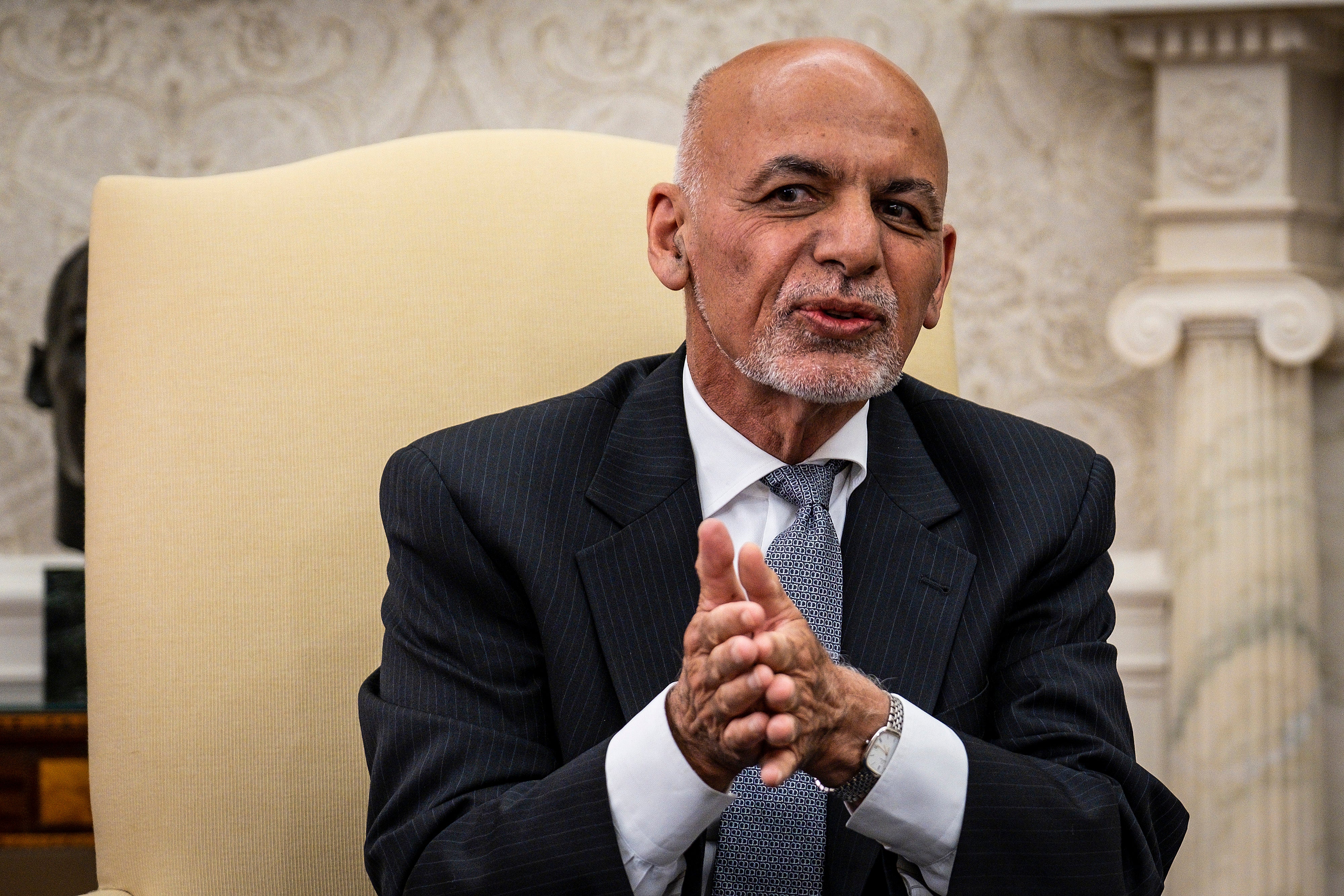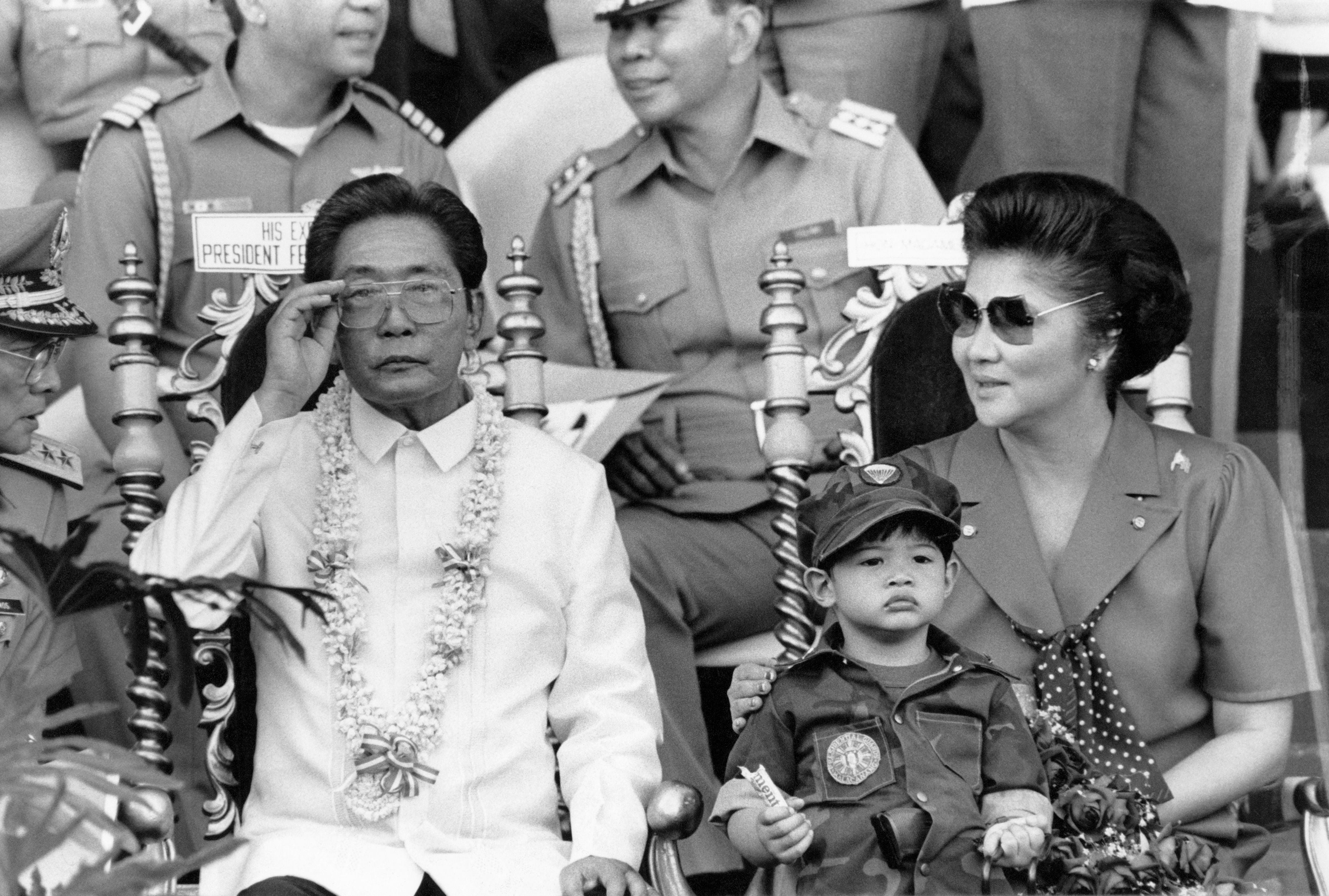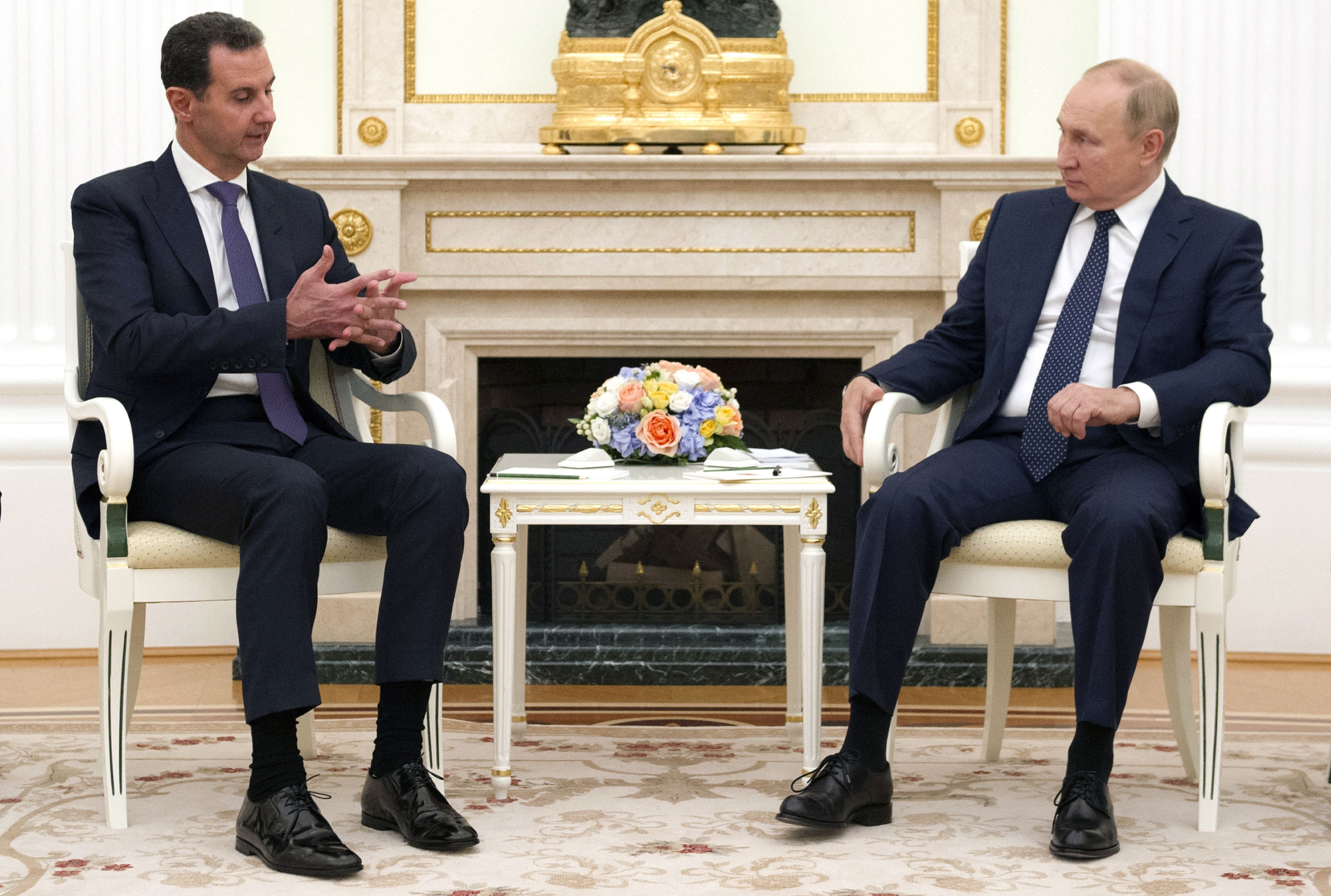Despots in exile: How even the most unpopular world leaders can find safe haven abroad
Ousted heads of state are most likely to flee to a friendly neighbour – but when no such option exists, giving even the most unpalatable leaders a viable escape route can turn out to be the lesser of two evils. Namita Singh reports


“Gota go home” was the message chanted loud and clear by protesters on the streets of Sri Lanka, directed towards their embattled president Gotabaya Rajapaksa as their country spiralled into economic ruin. Yet the result of loosening the Rajapaksa family’s iron grip on the country was that Gota ended up fleeing 3,400km away from home – to Singapore.
With Rajapaksa’s own appointee now installed as president of Sri Lanka, there are questions over how much will really change in terms of the country’s governance, and indeed how long his exile will last. But Singapore has insisted he is there on a brief “private visit” and that he will enjoy no “privileges, immunity or hospitality”, meaning it is unlikely to be his final destination.
Protesters still want Rajapaksa to be held accountable for his mismanagement of the country’s finances and, given he no longer enjoys the immunity from prosecution he did while serving as president, an immediate return to Sri Lanka seems doubtful.
So where might he go next? In search of a safe haven, Rajapaksa could look to recent history for examples of ousted leaders who found themselves accepting another country’s hospitality.
Almost 11 months before him another south Asian leader – President Ashraf Ghani – fled from Kabul as the Taliban took control of Afghanistan.

While he faced criticism for abandoning the capital and his countrymen to the militant group, Ghani soon found refuge in the United Arab Emirates, another country in the region enjoying a close security partnership with the United States, which announced it had taken in the leader and his family on humanitarian grounds.
The Taliban swept into Kabul as soon as the US withdrew its last forces and on the same day as Ghani’s escape, and quickly consolidated their power over the country, arguably vindicating his decision given the kind of treatment he would have expected at the hands of the militants.
“The key factor driving the decision to flee is the risk of punishment, which is normally higher when the leader is ousted via irregular or even violent means, such as a coup, a civil war, or mass protests,” explains Dr Abel Escribà-Folch, an associate professor at the department of political and social sciences of Universitat Pompeu Fabra in Barcelona.
“Leaders ponder the risk of retribution at home against the risk of being persecuted or extradited if they flee,” he tells The Independent. Since in most cases the probability of the former is greater than the latter, “going into exile looks like the safest option”.
They look for long-term protection and therefore “take into account the likelihood of being accepted and hosted, and then the prospect of being able to stay there safely”.
“Dictators are more likely to go into exile in states that are close neighbours, have hosted other dictators in the past, are militarily powerful and possess colonial links [or] formal alliances,” finds Dr Escribà-Folch in his 2017 research paper Dictators in Exile: Explaining the Destination of Ex-Rulers, co-authored with Dr Daniel Krcmaric of Northwestern University.
“By contrast, fleeing dictators tend to avoid democratic states and countries experiencing civil conflict.”
It is not that democracies have never hosted dictators and unpopular ex-leaders in the past. This has happened in several high-profile examples, but there are usually specific reasons why, he argues.
“In many cases, democracies accept to host bad leaders in order to smooth political change in the country of origin, so offer an exit option that leaders might prefer to fighting for survival at home,” Dr Escribà-Folch explains.
Consider this: Ferdinand Marcos, the president of the Philippines from 1965 to 1986, went into exile in the US, a former colonial power and an ally. Marcos, who had been one of America’s key anti-communist partners in the region, fled to Hawaii in 1986 after the People Power Revolution toppled him following a rigged election.

“Amid growing unrest and a failed military coup, the US helped convince him to step down,” says Dr Escribà-Folch, adding that an offer for asylum from the then president Ronald Reagan paved the way for a peaceful transition of power to the moderate opposition headed by Corazon Aquino.
But former colonial powers like the US also have strong incentives in hosting these leaders. Often they are profoundly “involved in the domestic politics of their former colonies, with dictators sometimes being instrumental to the protection of ex-colonisers’ interests”, he says.
“On the one hand, granting asylum can be a way to reward a friendly ruler in trouble by offering him a safe haven for retirement. Moreover, by doing so, a state can signal to other friendly leaders that they too will be protected, which further incentivises them to align with the host state’s foreign policy interests,” says Dr Escribà-Folch.
Dictatorships may have similar motivations, and helping other autocratic allies in times of distress might be equally advantageous, he adds. “They can sometimes offer more credible protection as they are less committed to international human rights protections, and might not be members of the International Criminal Court, such as the UAE and Saudi Arabia.”
Neighbouring countries can also have an interest in proving aid to an outgoing ruler. This is “because they are more likely to suffer negative externalities – such as refugee flows or political instability – that can spread across borders”. Granting asylum to a neighbouring ex-dictator can, therefore, also be read as a calculated strategy to reduce regional instability, he says.
The flip side of this is that when leaders are unable to find an exile destination that provides credible protection, they may decide to cling to power at all costs. It was observed during the 2011 Libyan conflict when Muammar Gaddafi, also facing an ICC indictment, chose to fight to the death rather than go into exile, note the authors in their 2017 paper.
In Syria, efforts to coax Bashar al-Assad out of power failed. “When Syrian rebels pushed toward Damascus in December 2012, it was widely expected that Assad would flee abroad,” wrote the authors.

“Assad himself appeared open to this possibility if the circumstances were right and was ‘looking for a way out’ according to one Damascus-based diplomat. There was a behind-the-scenes diplomatic scramble to find an exile destination for Assad, but a good option never materialised,” they noted in the paper. At the time the US’s secretary of state Hillary Clinton labelled him a war criminal, which “perhaps dissuaded some states from offering him refuge”.
“Without [a] credible exit option, Assad unsurprisingly decided to continue the conflict,” which is ongoing with estimates suggesting a loss of over 600,000 lives, making the civil war one of the deadliest of the 21st century.
Exile also opens the possibility for return in the future, says Dr Escribà-Folch. It was so in the case of Nawaz Sharif of Pakistan. Having been allowed to go into exile in Saudi Arabia in 1999 after the coup by General Pervez Musharraf, he returned to the country in 2007 and – five years later – was again elected as prime minister.
It’s possible that Rajapaksa and his allies will hold out hope of something similar in Sri Lanka, but it certainly won’t happen immediately. The former leader is being dissuaded from returning to the country, even by the man he appointed as prime minister and then his stand-in. “I don’t believe it’s time for him to return,” new president Ranil Wickremesinghe said in an interview with The Wall Street Journal. “I have no indication of him returning soon.”






Join our commenting forum
Join thought-provoking conversations, follow other Independent readers and see their replies
Comments